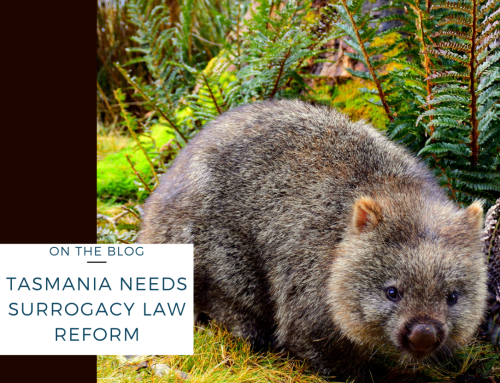Somewhere in the Top 10 Questions about Surrogacy is: Why aren’t surrogacy agreements enforceable? The answer is both simple and complex, and comes back to two primary factors.
Firstly, the rights and best interests of the child are paramount. You might think “yeah, of course” and “duh.” You might also be thinking “but surely the child’s interests are best served if they are living with the intended parents?” Well, that might be the case, but it might not. And actually, it’s a whole lot more complex than just a matter of handing a baby over to the people who were their intended, or genetic parents.
If we make a surrogacy agreement enforceable, that makes it more like a contract than an agreement. A contract is created when parties agree to exchange something in return for something else; there are usually consequences if you breach a contract. If you make a surrogacy agreement enforceable, you are elevating the contract above the rights and best interests of the child. A woman engaged as a surrogate in an enforceable contract will be forced to hand over a baby, not because it is in the child’s best interests, but because she will face consequences for breaching the contract if she does not. And whilst it might be in the child’s best interests to be raised by the intended parents, that’s not a decision that should be determined by enforcing a contract against the surrogate.
The other reason why surrogacy agreements are not enforceable is that a surrogate retains her bodily autonomy throughout treatment, pregnancy and birth. “Enforceable contract” and “Bodily Autonomy” are basically contradictory concepts. A surrogacy agreement cannot be enforceable and still uphold the surrogate’s right to bodily autonomy. She cannot, for example, be forced to undergo certain treatments, or a pregnancy termination, or to continue a pregnancy against her will. The long and short of it is that if you make surrogacy agreements enforceable, you are denying a woman her bodily autonomy.
So next question – will she keep the baby if it’s not enforceable? The chances are, no. In fact, whilst there have been no cases of a surrogate keeping the baby in Australia, there have been many cases in the US where the intended parents have refused to take the baby. The risk, statistically speaking, is on the surrogate more than the intended parents.
And what if she does keep the baby? Do the intended parents have any recourse? Well, contract law doesn’t apply, but family law does. The intended parents can issue proceedings in the family courts, seeking that the child be placed in their care. Ultimately, the court will determine what is in the child’s best interests. Genetics is only one factor considered, but the fact that everyone signed a surrogacy agreement won’t determine who should raise the child.
If all of this makes you anxious, that’s understandable. Altruistic surrogacy is all about the relationship, and building trust between the surrogate family and the intended parents. It is worth taking the time to understand how altruistic surrogacy works, why women become surrogates (and why we definitely do not want your baby) and how other surrogates and intended parents have experienced surrogacy in Australia. You can read more at the Amazing Surrogacy Project, or listen to the Surrogacy Podcast.
If you are new to surrogacy, you can read about how to find a surrogate, or how to become a surrogate yourself. You can also download the free Surrogacy Handbook which explains the processes and options.
You can also purchase my book, More Than Just a Baby: A Guide to Surrogacy for Intended Parents and Surrogates, the only guide to surrogacy in Australia.








